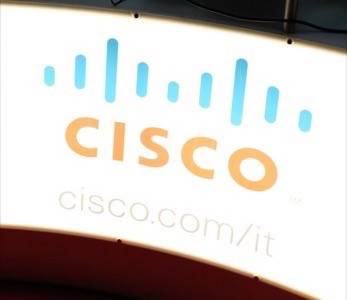
Cisco is not afraid to spend big to show investors that it will not be left behind as software takes on a greater role in networking. The world’s largest maker of networking gear agreed this week to spend $1.2 billion for Meraki, a San Francisco startup that builds software-centric wireless networks for mid-size organizations. The deal dwarfs the $125 million Cisco spent last week for Cloupia, a maker of software that manages data-center resources.
Cisco’s Struggles
Cisco has fought to convince investors that it isn’t an anachronism. At roughly $18 a share, Cisco’s stock price has barely budged since the beginning of the year. But companies of its size with billions in the bank do not go down without a fight.
If the Meraki deal closes as expected in the second quarter of next year, Cisco will expand its footprint in the midmarket. Specifically, the startup has targeted organizations with lean IT departments that support Wi-Fi networks in multiple locations, such as branch offices, hotels, restaurants, retail stores and schools.
“Cisco’s offerings were only partially covering that and not really hitting the sweet spot,” Rohit Mehra, analyst for IDC, said.
Meraki’s software enables an administrator to log into a Web app running in a browser to get a centralized view of a wireless network. Through the app, IT managers can allow the type of devices based on hardware as well as operating-system version. More important, they can dictate which apps on devices can access the network, and prioritize the apps, so the most important ones get in first.
Meraki is expected to become a valuable extension to Cisco’s current portfolio, Mehra says. “Over time, I think this could be a nice incremental addition.”
Meraki’s Success
Started in 2006 by three doctoral candidates from Massachusetts Institute of Technology, Meraki expects $100 million in bookings this year and is cash-flow positive, Sanjit Biswas, chief executive of the company, wrote in a letter announcing the deal. The company has 330 employees, nearly three times more then at the beginning of the year.
Its growth is driven by increasing demand for wireless networks to support smartphones, tablets and laptops. Wireless devices are expected to top 1.1 billion units worldwide this year, rising to 1.84 billion units by 2016, more than twice the number last year.according to IDC. That works out to a five-year compound annual growth rate of more than 15%.
Meraki investors will likely make a bundle on the deal. They include Google, Felicis Ventures and Sequoia Capital. Google has also bought 1,000 routers from Meraki, Douglas Leone, a Sequoia partner, said.
Growth By Acquisition
Cisco has been cutting costs, shuttering poorly performing divisions and trimming prices to keep rivals Hewlett-Packard and Juniper Networks from grabbing customers. While cost cutting certainly improves earnings in the short term, a company still needs to grow sales. Cisco is doing that through acquisitions like Meraki and Cloupia.
Meraki gets the benefit of Cisco’s worldwide sales team, propelling the company into regions that it would have taken years to penetrate on its own.
About 80 percent of Cisco’s revenue growth comes from new business, which brings volatility to quarterly results, particularly in a rocky economy. Meraki adds more-stable recurring revenue through software licensing.
Meraki will become Cisco’s new Cloud Networking Group. But with Cisco’s cash reserve of more than $40 billion, the parent company is unlikely to let Meraki stay there alone for very long.
















